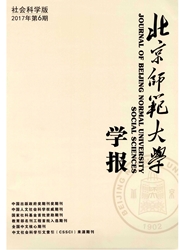

 中文摘要:
中文摘要:
自我损耗会消耗人们有限的自我控制资源,使其在日常生活中无法进行有效的自我控制。因此,研究自我损耗的后效对于社会适应不良的预防和干预有着重要的理论和实践价值。从心理学的分析框架看,自我损耗的后效作用往往涉及两个方面:一方面,个体的基本认知能力和社会性认知,个体对情绪的知觉和调节,以及个体的意志力、选择决策、亲社会性和攻击性等行为,都会受自我损耗的直接影响;另一方面,自我损耗还会通过个体差异产生问接影响,即在自我损耗条件下,人格对某些行为表现的预测力可能会被放大或被削弱。在由自我损耗导致的诸多后效中,有些是短暂并可逆的,有些则会是长期和稳定的,其影响的持续时间往往由自我损耗的强度所决定。
 英文摘要:
英文摘要:
Ego depletion reduces self-control strength, which leads to failure in exerting self-control in daily life. Therefore, concern for aftereffects of ego depletion has both theoretical and practical importance to preventing individuals' social maladjustment. The framework of aftereffects of ego depletion can be constructed through two pathways. One is the direct aftereffect on cognition, emotion, and behavior; in addition, there may exist a causal effect among these three elements. The other pathway is the aftereffect on individual differences, which may change the power of personality in predicting behavior.
 同期刊论文项目
同期刊论文项目
 同项目期刊论文
同项目期刊论文
 期刊信息
期刊信息
